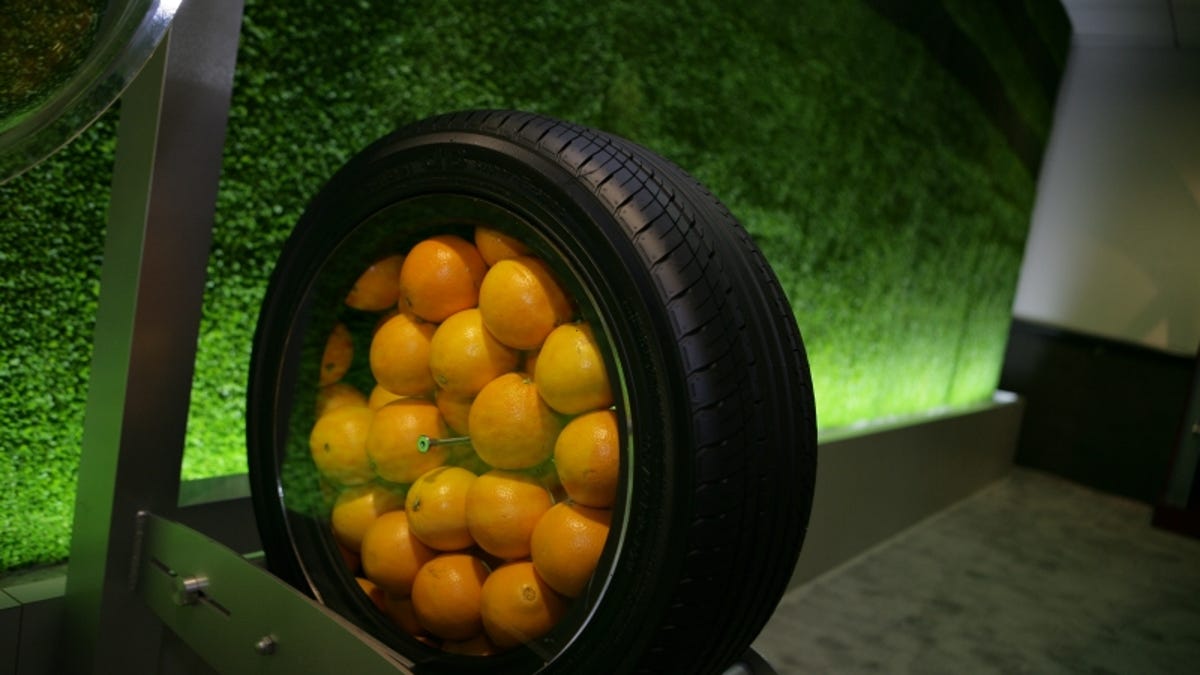Will orange tires have appeal?
Yokohama develops an environmentally-friendly tire made from oranges.

It sounds bananas, but Yokohama Tire Corp. has figured out a way to use oranges to make a greener tire.
Nearly 20 gallons of petroleum go into a set of tires, meaning that about 5 million barrels of oil annually are consumed by a 10 million-vehicle market. By infusing oil extracted from orange peels into natural rubber, Yokohama has cut the amount of petroleum in its dB Super E-spec tires by 80 percent.
"We've been working on this technology for 20 years," said Mark Chung, Yokohama director of strategic marketing. The tires have been tested in racing venues such as the Porsche GT3 Class series.
"Most eco-tires are just a harder compound, which means they have less grip until they heat up," Chung said. "But the base temperature of an orange tire is better. It's also stickier at heat because the natural rubber and orange oil interact."
Wear and braking performance are on par with standard tires, Chung said. During a closed-course test in a Mini Cooper S, the tires felt balanced and in control, although a little more prone to squeal and howl under duress.
Yokohama's orange tire also has 22 percent lower rolling resistance than the standard tire on a Toyota Prius, meaning better fuel economy. Also, it weighs 2 pounds less than most original-equipment tires.
The tire is produced in an emissions-free plant using peels discarded by orange juice manufacturers. "It's not like we're growing orange groves to do this," Chung said. Yokohama offers the orange tire as a replacement on the Mini Cooper, Prius, Honda Civic Hybrid, Honda Insight and Nissan Versa. At tirerack.com, a typical Prius replacement tire is the Goodyear Integrity, priced at $74 per tire. The Yokohama dB Super E-spec is $105.
Sadly, the tires don't have a citrus scent when they heat up. And in case you were wondering: they're black, not orange.
(Source: Automotive News)